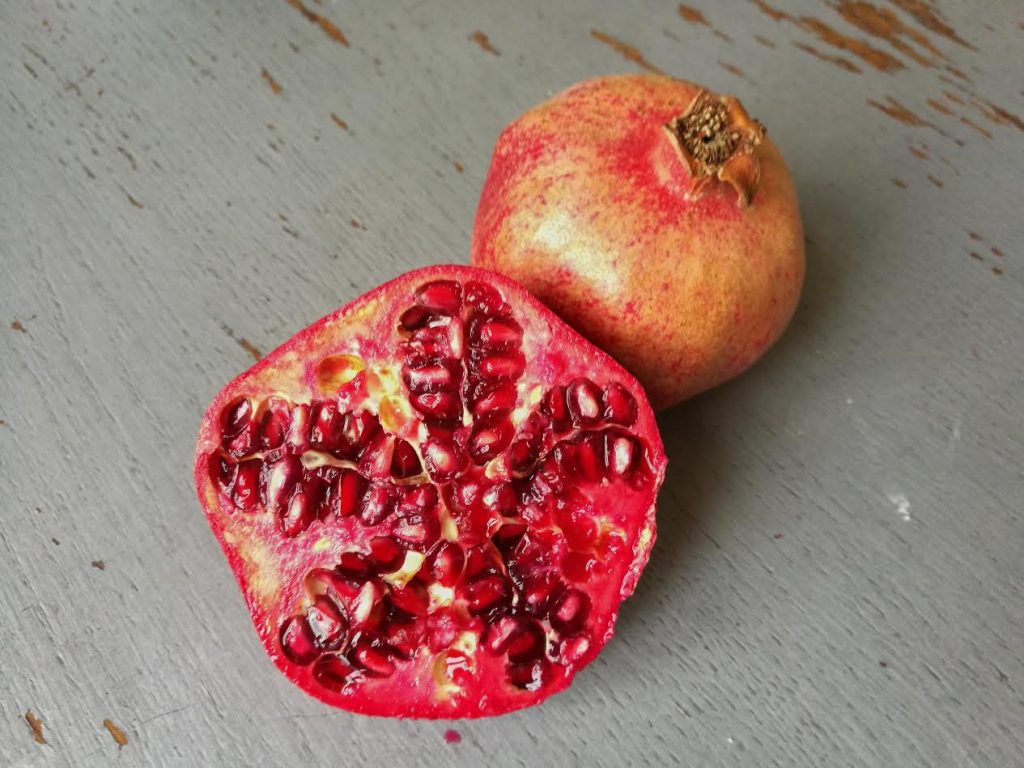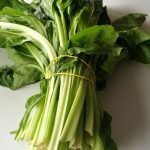Continuing our look at the 101 Tastes of Croatia, this week Tea introduces us to some creative uses of the humble pomegranate.
NAR or ŠIPAK (Pomegranate)
Šipak is an autumn fruit which is just in season here so what better time to write about it then now? Although culinary not so popular, šipak has a big cultural impact in Croatia. First let’s start with the name. The proper term is nar or mogranj (although I never heard anyone use this term) while šipak actually refers to rosehip, but I suspect that it is because of their similar looks in shape and color that they have been put in the same basket. Croats like to use the term šipak (should not be mixed with šupak…) when describing two things:
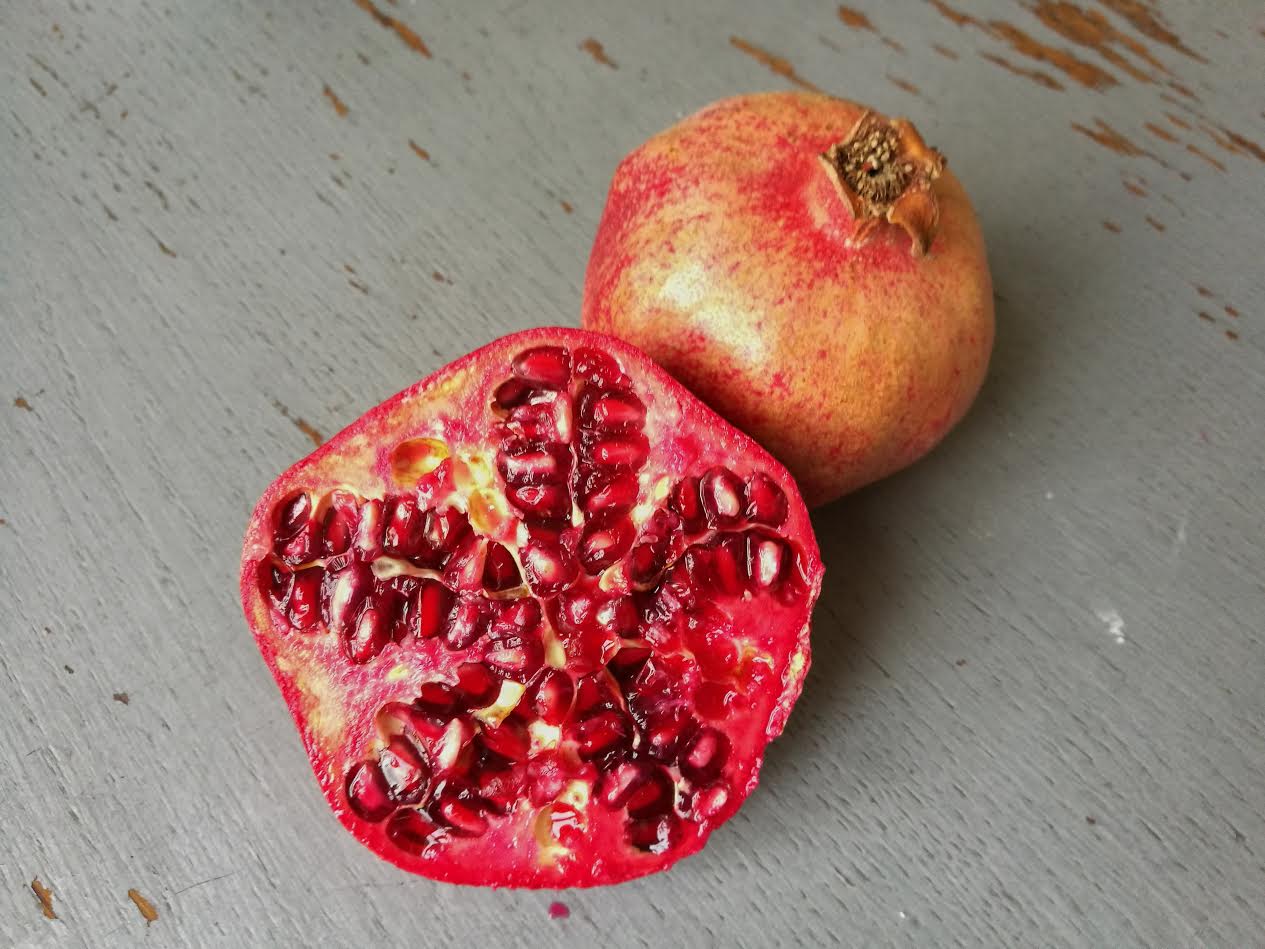
1. Abundance of things: ”Pun je ko’ šipak.” (lit.trans. He’s as full as a pomegranate.) – when referring to someone’s wealth. An example of another kind of abundance is found in an old Yugoslavian song that everyone in Croatia knows. Called Moja mala djevojčica it is sang from two perspectives, the father and the daugther. The father says: ”Moja mala djevojčica puna je velikih želja, baš kao šipak pun koštica, tako je puna veselja.”, which roughly translated means: ”My little girl is full of big wishes, just like a pomegranate full of seeds, she’s full of joy.”
So you get the picture. For those who want to know more:
https://www.youtube.com/watch?v=q5n0hos_f94P
2. Negative emotions and unwillingness to do something: ”Hoću šipak.” (lit.trans. I will pomegranate.) – when emphasising how you’re not doing a certain thing.
From a culinary aspect, šipak is used mostly fresh as a fruit and in a fruit salad. It is cold-pressed into juice, cooked for jam or added to chocolate cakes. Occasionally it is added to meat dishes like lamb. Šipak grows on the coast, especially in the region around the Neretva river. It is one of the healthiest fruits in the world and has a proven effect on lowering cholesterol levels. Full of antioxidants and vitamin C, it is very potent and pungent. One of my favorite ways to use it is to sprinkle it over fresh, leafy greens such as lettuce, arugula, kale or cabbage. Throw a handful of pomegranate seeds in a bowl, add greens of your choice and season with olive oil, lemon juice and sprinkle of salt. A fresh and healthy salad.
Or squeeze the juice out and use it for deglazing the meat. Better than acetto balsamico.
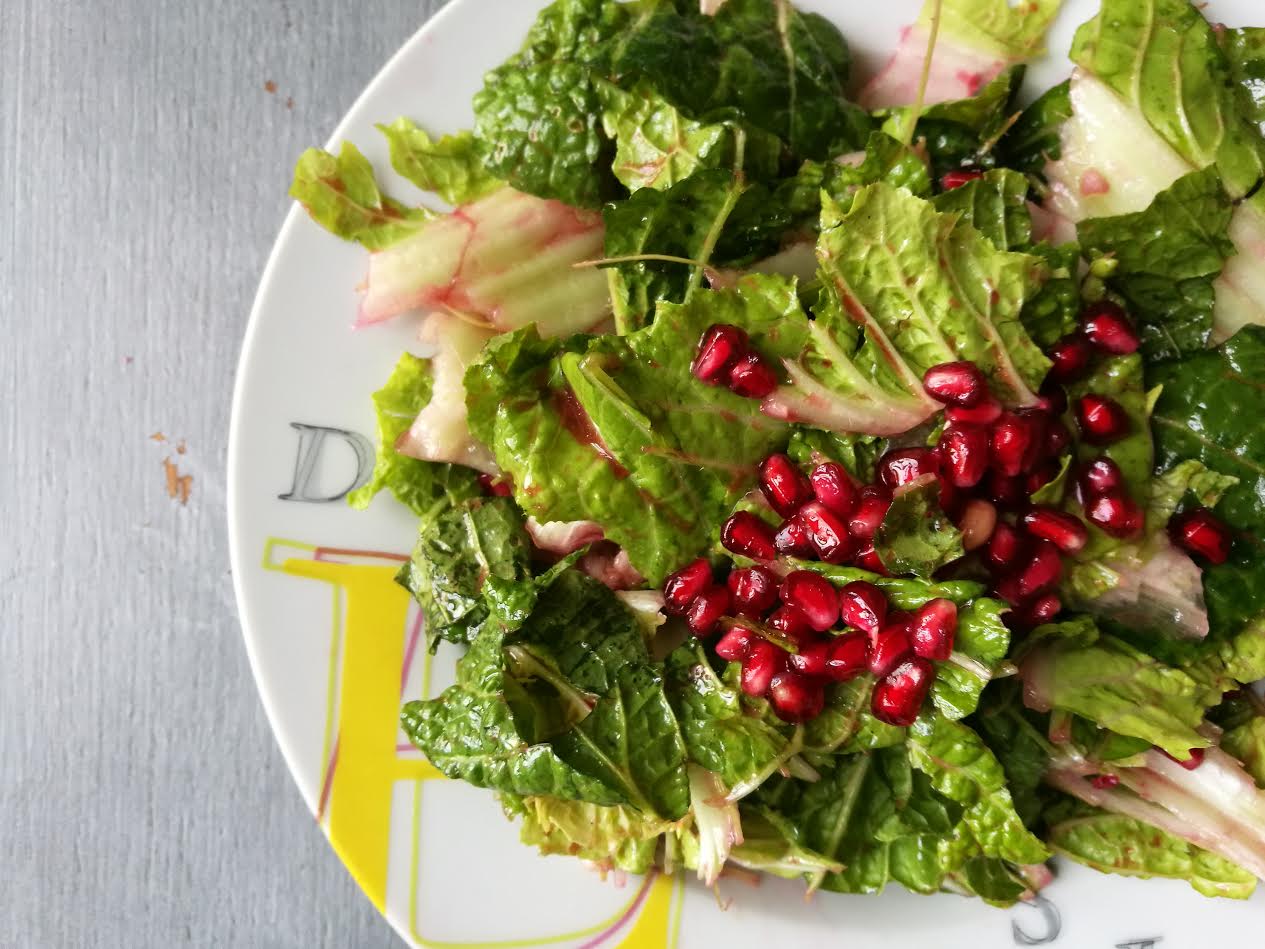
Since Christmas is just around the corner I created a cookie recipe that requires this lovely fruit and gives it a lovely slightly citrusy kick, which works well with cinnamon.
Ingredients:
⦁ 100 g of brown sugar
⦁ 150 g of rolled oats
⦁ ½ tea spoon of baking powder
⦁ Salt
⦁ 300 g of all purpose flour
⦁ 1 egg
⦁ 50 g of butter
⦁ ½ tea spoon of ground cinnamon
⦁ Seeds from ½ of a medium sized pomegranate*
⦁ 1 lemon
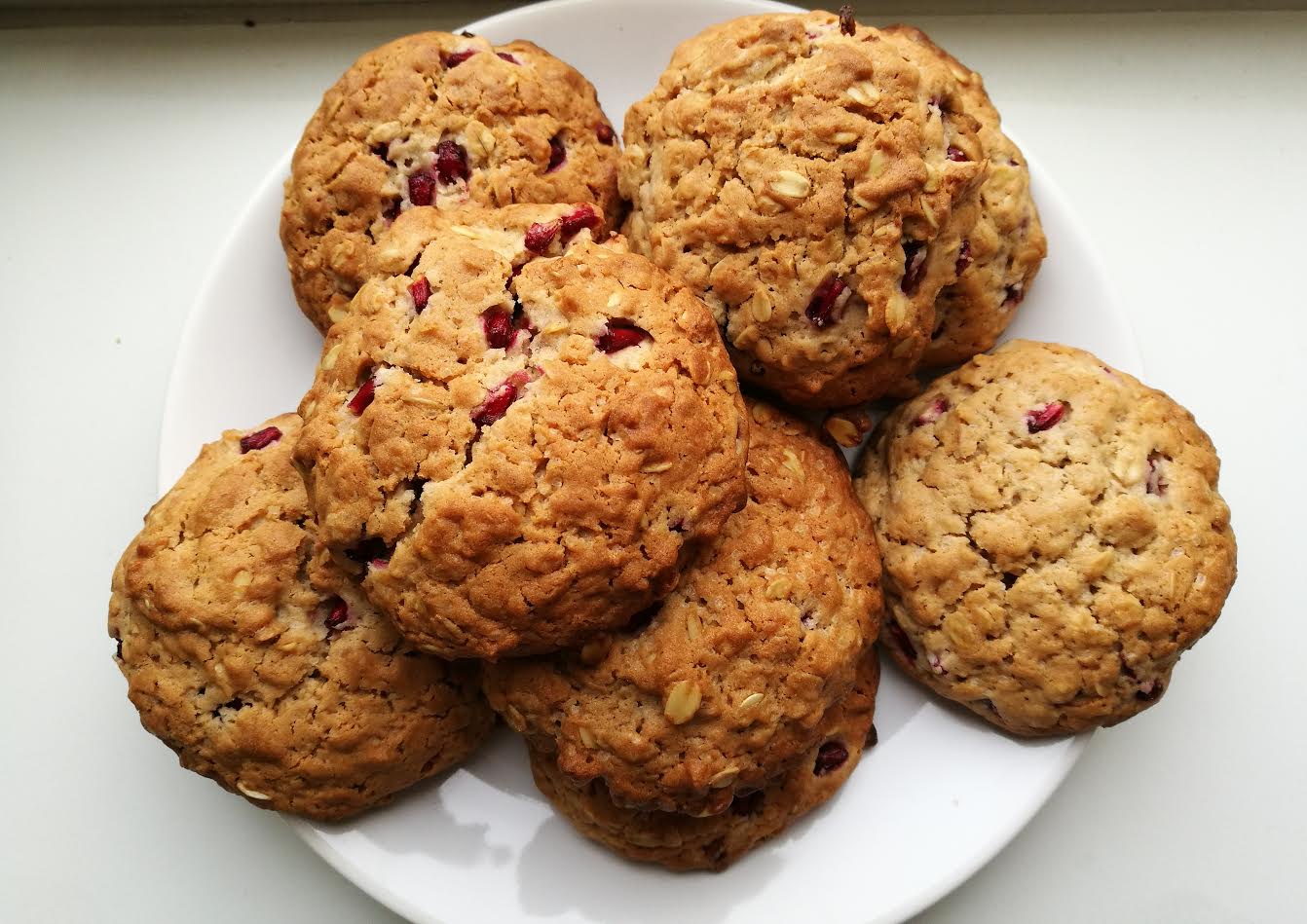
Instructions:
1. In a bowl mix the flour, baking powder, rolled oats with a pinch of salt and cinnamon.
2. In another bowl mix the butter with the egg and sugar. Whisk until slightly foamy. Add the zest of one lemon and pomegranate seeds. Mix well.
3. Then pour the dry ingredients into the wet ones and mix until starting to come together.
4. You’ll get a dense sticky paste. With slightly damp hands make 8-10 balls of dough and place on a tray lined with grease proof paper.
5. Bake for 15-20 minutes in a preheated oven (180 Celsius degrees). When the edges become brown and the top becomes lightly golden take them out.
6. They’ll seem soft but after 5 minutes of cooling the crust will become crunchy while the insides will remain soft.
7. Serve with some hot beverage like cocoa, tea or mulled wine (in which btw you can add a sprinkle of pomegranate seeds while simmering).
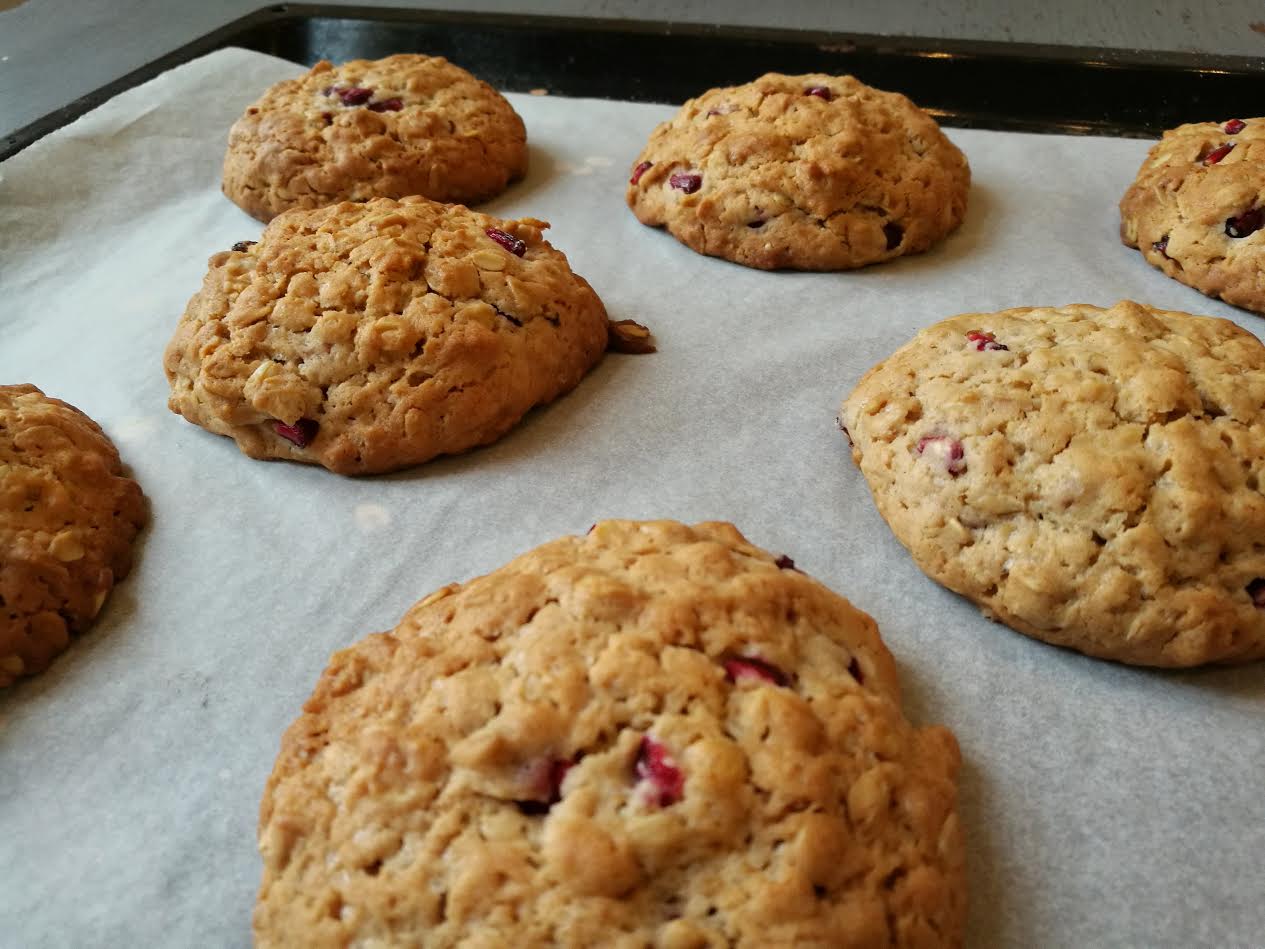
*The easiest way to clean a pomegranate is to cut it in half, then place one half cut side down in your palm. Spread the fingers lightly and beat the pomegranate with the back of a spoon. The seeds will just pop out and you’ll get the beautiful, artsy red drops on the plate.
While writing this tip I think I might have found the reason why pomegranate is not so popular in cooking. No Croat will take enough time to clean it the painful, old fashion way, peeling through the skin and digging the seeds out. Growing up, I specifically remember pomegranate was the fruit that lasted the longest in a fruit bowl because no one wanted to bother with it. Interesting…

